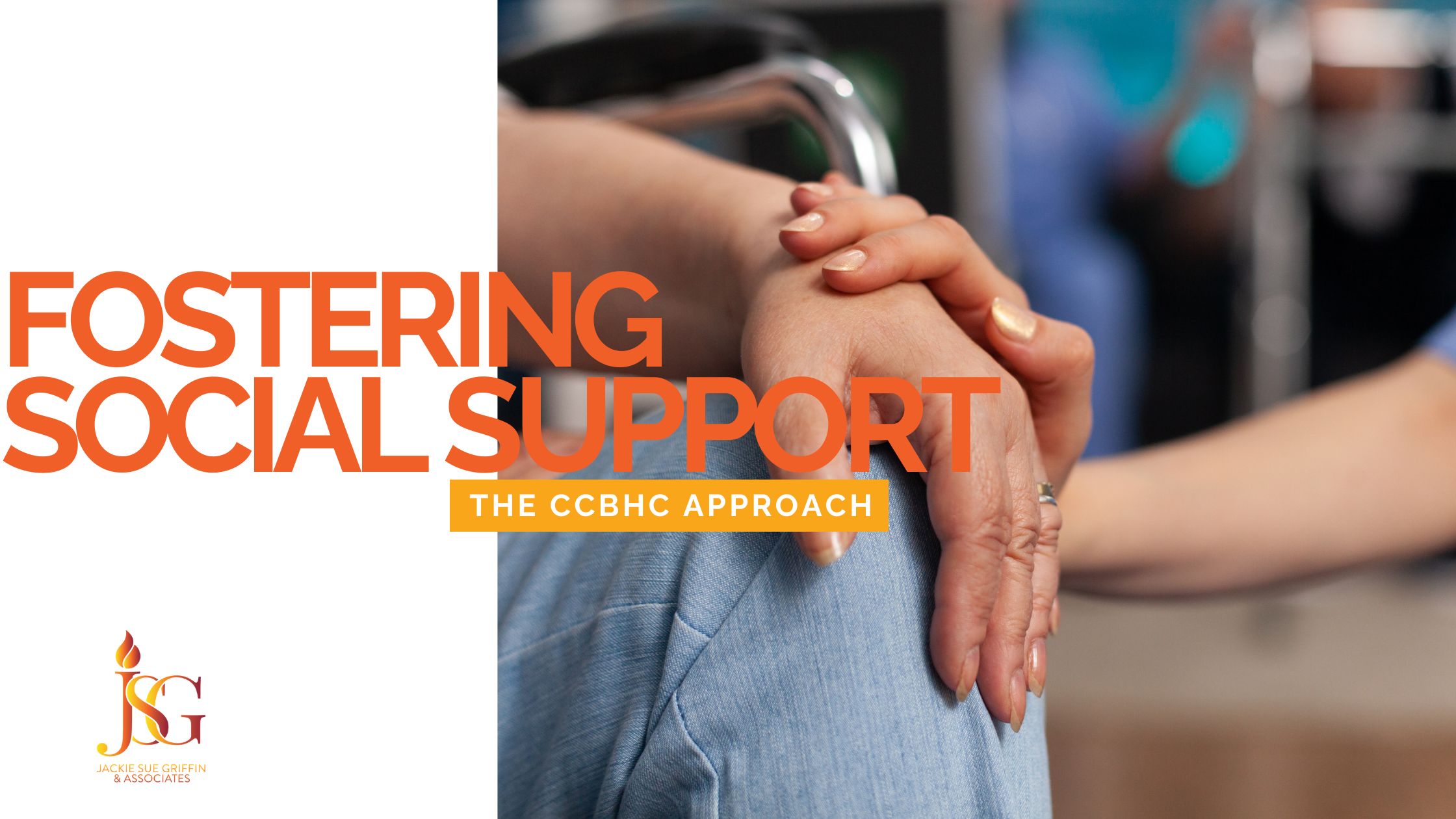
09 May How Nonprofits Foster Social Support for Mental Health: The CCBHC Approach
When someone is facing a mental health challenge, clinical care is just one part of the equation. Just as vital are the relationships, resources, and social networks that help people feel safe, supported, and empowered to move forward. This is where Certified Community Behavioral Health Clinics, or CCBHCs, are changing the game. These nonprofit models show us how care can be expanded beyond the therapy room and into the very fabric of a person’s daily life.
CCBHCs are helping to redefine what comprehensive behavioral health looks like by bridging clinical services with meaningful social support. Their work highlights how nonprofits can not only address immediate needs, but also build strong, lasting foundations for mental wellness in the communities they serve.
Understanding the CCBHC Model
The CCBHC model was created through federal legislation in 2014 to provide more holistic and accessible behavioral healthcare. To become certified, organizations must meet national standards and deliver a range of integrated services. This includes everything from crisis care and outpatient therapy to substance use treatment, peer support, primary care screenings, and veteran services.
What sets CCBHCs apart is their deep commitment to connection. They don’t just treat symptoms. They recognize that a person’s housing, employment, safety, and relationships are all part of the healing process. CCBHCs weave social supports directly into their care plans, offering things like housing assistance, benefits navigation, and community-based peer programs. It’s about meeting people where they are—and walking with them every step of the way.
Creating a Web of Support
One of the core strengths of the CCBHC approach is its understanding that mental health cannot be treated in isolation. If someone is facing eviction, food insecurity, or unemployment, clinical care alone may not be enough to create lasting change. That’s why CCBHCs build strong networks that reach beyond their own walls.
These clinics often partner with schools, housing authorities, faith-based organizations, transportation providers, and law enforcement. This network ensures that care is coordinated and that no one falls through the cracks. For example, someone experiencing severe depression who is also housing insecure can receive both mental health support and stable housing—two critical pieces of the recovery puzzle working in sync.
The Power of Peer Support
Another transformative piece of the CCBHC model is its embrace of peer support. This means bringing in individuals who have experienced mental health or substance use challenges themselves and training them to walk alongside others on their own healing paths.
Peer specialists offer something uniquely valuable. Because they’ve been through similar struggles, they can build trust quickly and help reduce the isolation and stigma that so often come with mental illness. Whether they’re facilitating a support group, helping someone navigate the system, or simply listening with understanding, peers help people see that recovery is not only possible—it’s happening.
In many CCBHCs, peer support isn’t an add-on. It’s integrated throughout every program, from outreach to treatment planning. This approach honors lived experience as an essential form of knowledge, creating space for healing that feels authentic and inclusive.
Bringing CCBHC Principles into Your Work
Even if your organization isn’t formally certified as a CCBHC, there’s still a lot you can learn from this model. Start by taking a look at your community partnerships. Where are your clients getting stuck? Who else is serving the same population? Building stronger bridges between your services and theirs can make a world of difference in someone’s experience of care.
You might also explore adding or strengthening peer support. Whether through volunteer mentorship, contracted roles, or partnerships with peer-led groups, these connections add depth to your programs and reflect a powerful commitment to community-led healing.
And when it comes to measuring success, look beyond traditional metrics like reduced symptoms. Ask how many clients have secured housing, found meaningful work, built stronger relationships, or reconnected with their community. These are the signs that your impact is reaching far beyond the therapy room.
The Future Is Holistic, Community-Rooted Care
The CCBHC model reminds us that mental health recovery is not a solitary journey. It’s built on connection, dignity, and support. Nonprofits have a powerful role to play in weaving together services that see the whole person, not just their diagnosis.
At Jackie Sue Griffin & Associates, we believe that sustainable care requires more than systems. It requires compassion, collaboration, and a willingness to walk alongside people in all parts of their journey. As we continue building stronger nonprofit systems, let’s take inspiration from the CCBHC approach and keep striving toward care that is connected, community-rooted, and whole.

No Comments